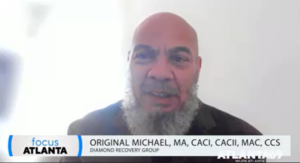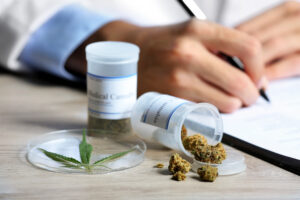The search for a drug and alcohol rehab for yourself or your loved one can be overwhelming, and at times, confusing. There are thousands of drug and alcohol treatment centers in the U.S. You’re also likely to encounter unfamiliar terms like titration, medical detox, evidence-based care, and dual-diagnosis treatment.
This article from Diamond Recovery focuses on dual-diagnosis treatment and why it’s an important consideration. We will also define some of the other common terms for you to help you make an informed decision about drug treatment for yourself or your loved one.
What Does Dual Diagnosis Treatment Mean?
Dual-diagnosis is one of those terms which is somewhat self-explanatory. A person with a dual diagnosis has (at least) two diagnosable conditions. In the world of drug and alcohol treatment, it refers to a patient who has a substance use disorder (AKA addiction) and a co-occurring mental health disorder like anxiety or depression.
Research has shown that as much as 65% of the population who admit to addiction treatment have a co-occurring mental health disorder. However, only about 18-20% of alcohol and drug rehab programs meet the criteria of a dual-diagnosis treatment program. Undiagnosed and untreated co-occurring mental health disorders are a major cause of relapse.
Definitions of Common Terms in Drug and Alcohol Treatment
- Dual-Diagnosis Treatment: Treatment for substance use disorder that coincides with a secondary mental health condition like PTSD, anxiety, or depression.
- Co-occurring disorder: The secondary condition the patient is diagnosed with. For example, a person who enters treatment for an opioid use disorder and also has a diagnosis of generalized anxiety disorder (GAD). In that case, opioid use disorder is their primary diagnosis and GAD is their co-occurring disorder.
- Substance Use Disorder (SUD): Dependence or addiction to an intoxicating substance, legal or illegal. Alcohol, marijuana, cocaine, amphetamines, heroin, prescription painkillers, benzodiazepines etc.
- Inpatient Medical Detox: The highest level of care for addiction treatment. During an inpatient medical detox, the patient is carefully weaned off of whatever substance they were dependent on under 24-hour medical observation. They will usually be given medications for their comfort and safety during this process.
- Residential or Inpatient Treatment: This is the highest level of drug and alcohol treatment (following an inpatient medical detox). Patients attend treatment full-time and sleep overnight in the medical facility with 24-hour clinical staff.
- Partial Hospitalization Program (PHP): This is the most intensive level of outpatient treatment. Patients in PHP usually attend treatment 5 full days a week. They spend all day in rehab, but they return home or to a supportive sober living environment at the end of the day.
- Intensive Outpatient Program (IOP): Addiction and/or mental health treatment which is delivered on an outpatient basis (patients do not stay overnight at a rehab). IOP treatment usually consists of about 9 hours a week, generally spread across 2-3 half-day sessions.
Why Is Treatment For Co-Occurring Conditions So Important?
The last sentence in the preceding paragraph holds the answer. Untreated co-occurring conditions are a major cause of relapse. It’s not hard to understand why. A person who is self-medicating for anxiety and social phobia by drinking alcohol will still have anxiety when the alcohol is removed. If that condition isn’t diagnosed and treated properly, the chances of them remaining sober are less than average.
Dual diagnosis treatment is critical because not only does it provide relief from any other mental health condition a person may be suffering from — but it also helps mitigate one of the leading reasons for relapse. Many patients are unaware of their secondary diagnosis before receiving dual diagnosis treatment. While knowledge of their condition alone will not keep them sober, having an explanation for why they feel the way they do and some solutions for the problem are key ingredients for a successful recovery.
Dual diagnosis treatment for addiction is important because:
- As much as 65% of the population of drug rehab patients have a dual diagnosis.
- Untreated mental health disorders are a leading cause of relapse.
- Patients given the right tools to manage their mental health are more likely to stay sober.
Does My Loved One Need Dual-Diagnosis Addiction Treatment?
The catch with dual-diagnosis treatment is that people often don’t know if they need it until they’ve been formally evaluated. Let’s face it. Addiction is a mess. When someone is caught up in the turmoil of substance abuse, it can be hard to tell what symptoms are a result of drugs and alcohol and which are evidence of an existing psychiatric disorder that was present before the drugs and alcohol came along.
Put simply, choosing a dual-diagnosis addiction treatment program is a wise decision because most people who have a co-occurring mental health disorder and enter addiction treatment are unaware of the second condition. As helpful as drug treatment can be, no one wants to enter treatment any more often than is necessary.
Nothing Ventured – Nothing Gained
By ensuring they get the right care and diagnosis, you are setting them up for success in early recovery. Dual diagnosis care for addiction is a more thorough treatment that leaves no stone unturned in the search for answers. If no secondary disorder is found, there is no disadvantage to being evaluated.
If a co-occurring condition like major depressive disorder is discovered, the patient will get the help they need to manage this condition as well as their addiction. This significantly improves the odds of them sustaining long-term recovery.
Dual Diagnosis Care at Diamond Recovery Group Programs
The substance use disorder programs under the Diamond Recovery Group banner all offer dual diagnosis treatment. Patients who enter any of our programs will receive a thorough psychiatric evaluation and a carefully crafted individual treatment plan to address their unique needs.
We hope you found this article about dual diagnosis treatment helpful. If you or someone you love could benefit from dual-diagnosis treatment for a substance use disorder or you just have questions about addiction or mental health treatment, please give us a call at (844) 909-2525.





